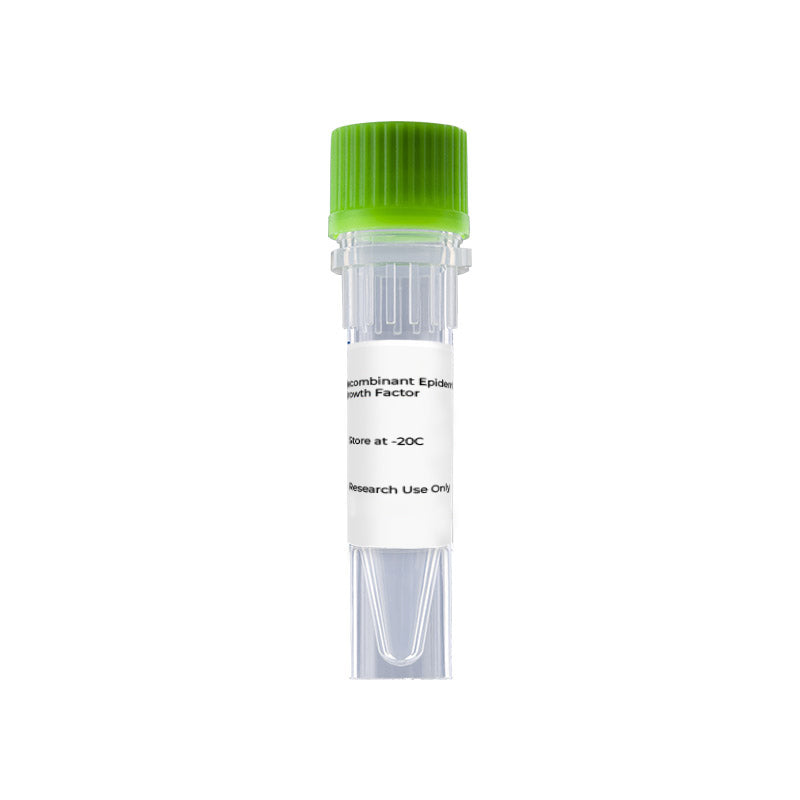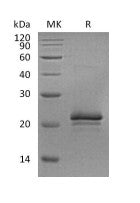1
/
of
2
Recombinant Rat VEGF 164
Recombinant Rat VEGF 164
Recombinant Rat Vascular Endothelial Growth Factor A is produced by our Yeast expression system and the target gene encoding Ala27-Arg190(Ala36Thr) is expressed.
Catalog No:
EPT063
Regular price
$285.00 USD
Regular price
$219.00 USD
Sale price
$285.00 USD
Unit price
/
per
Couldn't load pickup availability
Product Details
Accession
P16612-2
Molecular Weight
19.2 KDa
Apparent Molecular Weight
18-23 KDa, reducing conditions
Purity
Greater than 95% as determined by reducing SDS-PAGE.
Endotoxin
Less than 0.1 ng/µg (1 EU/µg) as determined by LAL test.
Expression Host
Yeast
Reconstitution
Always centrifuge tubes before opening.Do not mix by vortex or pipetting.
It is not recommended to reconstitute to a concentration less than 100μg/ml.
Dissolve the lyophilized protein in distilled water.
Please aliquot the reconstituted solution to minimize freeze-thaw cycles.
Shipping Condition
The product is shipped at ambient temperature. Upon receipt, store it immediately at the temperature listed in the Storage field.
Storage Condition and Shelf Life
Lyophilized protein should be stored at < -20C, though stable at room temperature for 3 weeks.
Reconstituted protein solution can be stored at 4-7°C for 2-7 days.
Aliquots of reconstituted samples are stable at < -20C for 3 months.
Background
Vascular endothelial growth factor (VEGF/VEGF-A ) is originally known as vascular permeability factor (VPF). It belongs to the PDGF family with a cysteine-knot structure comprised of eight conserved cysteine residues, and reckoned as a potent mediator in the process of angiogenesis and vasculogenesis in either fetus or adult. VEGF is particularly expressed in supraoptic , paraventricular nuclei and the choroid plexus of the pituitary, and abundant in the corpus luteum of the ovary and in kidney glomeruli. The rat VEGF protein contains a putative 20 amino acids (aa) signal peptide, and alternative splicing of rat VEGF gene produces isoforms of 120, 144, 164 and 188 aa. Rat VEGF164 respectively displays 97% and 88% aa identity with that regions of mouse and human VEGF. VEGF can bind to the FLT1/VEGFR1 and KDR/VEGFR2 receptors, heparan sulfate and heparin, and play important roles in inducing endothelial cell proliferation, promoting cell migration, inhibiting apoptosis and inducing permeabilization of blood vessels.
Analyte
VEGF
Regulatory Status
For Research Use Only



